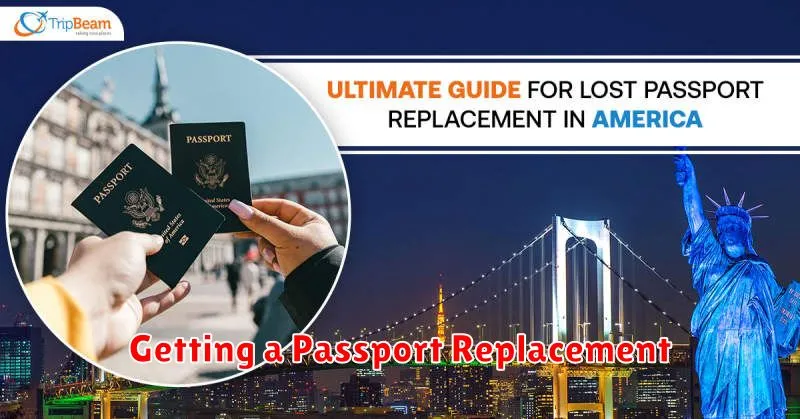Losing your passport abroad can be a stressful and disorienting experience. It’s a crucial document that proves your identity and citizenship, and its absence can significantly disrupt your travel plans. If you find yourself in this unfortunate situation, it’s essential to take immediate and decisive action. This article provides a comprehensive guide on what to do if you lose your passport abroad, outlining the steps you need to take to obtain emergency travel documents and minimize the impact on your trip. We’ll cover everything from reporting the loss to the relevant authorities to applying for a replacement passport.
Whether you’re a seasoned traveler or on your first international trip, losing your passport can happen to anyone. Understanding the necessary procedures beforehand can save you valuable time and alleviate some of the anxiety associated with this predicament. From contacting your embassy or consulate to navigating local regulations, this guide offers practical advice to help you navigate the complexities of losing your passport abroad and ensure your safe return home.
Staying Calm and Assessing the Situation
Discovering a missing passport can be incredibly stressful, but it’s crucial to remain calm. Panic will only hinder your ability to think clearly and take effective action. Take deep breaths and remind yourself that this situation can be resolved.
First, carefully retrace your steps to see if you can locate the passport. Check your bags, hotel room, and any recent locations you visited. Second, if your initial search proves unsuccessful, assess the urgency of your situation. Consider your immediate travel plans, visa requirements, and the availability of support networks.
Finding the Nearest Embassy or Consulate
Losing your passport can be a stressful experience, especially in a foreign country. Your first step should be to contact your nearest embassy or consulate.
Embassy and consulate staff can provide critical assistance during this process. They can help you with reporting the loss, applying for an emergency passport, and navigating local regulations. Locating your nearest embassy or consulate is typically straightforward.
Filing a Local Police Report
Filing a police report with local authorities is a crucial step if your passport is lost or stolen abroad. This report serves as official documentation of the incident and will be required when applying for a replacement passport.
Be sure to obtain a copy of the police report. It’s also wise to note the police report number and the contact information of the police station where you filed it for your records.
Getting a Passport Replacement

Losing your passport abroad can be a stressful experience, but taking swift action can simplify the replacement process. The most critical step is to contact the nearest U.S. embassy or consulate. They will guide you through the necessary procedures.
You will need to complete a form, provide proof of citizenship such as a birth certificate or previous passport, and submit a police report if your passport was stolen. You’ll also need to get a new passport photo. The embassy or consulate staff can provide information on where to obtain these locally.
Providing Proof of Citizenship
If you’ve lost your passport, providing proof of citizenship is crucial for obtaining a temporary travel document. Acceptable forms of proof include a birth certificate, a consular report of birth abroad, or a naturalization certificate.
Present the original document if possible. If not, a certified copy may be accepted. Contact your nearest embassy or consulate for specific requirements. They can guide you through the necessary steps to replace your lost passport.
Tips for Preventing Passport Loss
Safeguard your passport as you would any other valuable document. Before traveling, make photocopies of your passport identification page. Store these separately from your original passport.
Consider using a secure passport holder or pouch worn under your clothing. Avoid leaving your passport in easily accessible bags or pockets, especially in crowded areas.
When staying in hotels, utilize the hotel safe for storing your passport and other valuables. If a safe isn’t available, keep your passport securely stored within your luggage.
Carrying Backup Identification
Carrying backup identification is a crucial precaution when traveling internationally. If your passport is lost or stolen, having backup identification can significantly expedite the replacement process.
Consider carrying a color photocopy of your passport’s photo page, as well as a separate form of photo identification, such as a driver’s license or state-issued ID. Storing these separately from your actual passport minimizes the risk of losing all your identification at once.

